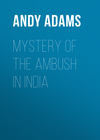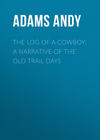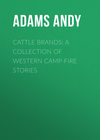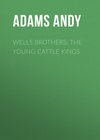Kitabı oku: «Mystery of the Ambush in India», sayfa 5
X
The Tiger Hunt
All the way across the fields to the village, Biff was brimming with excitement because they had met Barma Shah, the secret agent mentioned by Diwan Chand, and the all-important contact to Biff’s father. But Biff’s enthusiasm was marred by disappointment.
“If I’d only told him who I was!” he exclaimed. “All the while I was driving the jeep, I was holding back on that, thinking that to say anything to anybody might be giving ourselves away.”
“Barma Shah is very smart,” reminded Chandra. “Perhaps he knew who you were.”
“What makes you think that, Chandra?”
“We kept seeing jeep over and over. It went past us – we went past it – as if it was keeping watch on us.”
“But that was due to all the traffic – ”
“Traffic did not hold us up after Sahib Shah let you drive his jeep. Next thing, we were practically here at Supari.”
“You may be right, Chandra,” Biff agreed.
They had reached the actual village now, a mass of closely built huts with mud walls and tiled roofs, surrounded by yapping, nondescript dogs. It was almost sundown, and from this central point, the fields and trees looked dark and gaunt against the spreading purple of the sky. Now people, mostly in native costumes, were flocking out, first in alarm, then in a wild welcome when they recognized Chandra.
Biff and Kamuka were included in the villagers’ enthusiasm, and then Chandra’s uncle, the patwari, was greeting them and introducing them, in turn, to the patel, or head man of the village. The boys were supplied with cups of rich, delicious milk, and later they were taken to a modern building that served as school and community house, a symbol of the new India.
There, they feasted on tasty curry and rice, followed by fruits and cakes. Chandra, meanwhile, kept up a running chatter with his uncle and other villagers, mixing English with Hindi and the local native dialect. From the tone of the talk, Biff and Kamuka gathered that something quite serious was afoot. Chandra finally supplied the details.
“You will meet Barma Shah very soon,” Chandra told Biff, “because my uncle tells me that the head shikari at Keewal has asked the village people to help trap a tiger tomorrow night.”
“Aren’t tigers usually hunted in the daytime?”
“Not this kind,” declared Chandra. “This tiger is a cattle stealer, and lately he has prowled near the village, killing people after dark. That is why there was so much excitement when we arrived close to nightfall.”
As they left the community house, Biff heard the incessant barking of the dogs on the fringe of the town. Watchmen with big spears were on patrol. Many lanterns were aglow, showing that the village was tense and alert. Wisps of grayish smoke coiled from the chimneys and wavered, like fading ghosts, against the vast blackness of the starlit sky.
But when they entered the snug hut which Chandra smilingly termed their daulat-khana, or “palace,” Biff felt that the outside world was far away. His bed was a simple charpoy– tapes strung to its frame instead of springs or mattress – but Biff was so tired that nothing could have been more comfortable. The calls of the patrolling watchmen, the distant barking of the dogs, simply lulled him off to solid sleep.
It was nearly noon when Biff awoke. He and Kamuka followed Chandra around the village, where they saw weavers, shoemakers, carpenters, and blacksmiths at work. Chandra explained that they were paid off in crops raised by the farmers who made up most of the community. But today, the carpenters and metal workers were combining their efforts in constructing huge wooden frames that were set with heavy bars of iron.
“Why, that looks like a big portable cage!” Biff exclaimed.
Chandra’s uncle, the patwari, was standing by. He smiled and responded, “It is exactly that. Tonight, we use it to trap the killer tiger.”
“You mean he may walk right into it?”
“No, no!” The patwari shook his head. “The bars are to keep the tiger out, so the living bait will be safe inside the cage.”
“But don’t you just stake out some animal?” asked Biff. “So the tiger will think it is loose?”
“Usually we do that with a pig or buffalo,” replied Chandra’s uncle, “but this tiger has tasted human blood. So tonight we will try human bait. That is the purpose of the cage.”
“And the bait,” put in Chandra proudly, “will be Kamuka and myself. We are going in with Thakur, the head watchman and chief hunter of the village.”
“We are sorry to leave you out, Biff,” added Kamuka in explanation. “You were still asleep when they asked us, and it was only after we said, ‘Yes,’ that we found they only had room for two.”
Biff thought at first that his friends were joking, but it turned out they were quite in earnest. The cage had been specially designed for Thakur and two lookouts, preferably boys. But the village youths had become so tiger-conscious that they were seeing jungle cats every time a leaf stirred in the underbrush. So Chandra and Kamuka had been recruited for the job instead.
Biff put on a show of disappointment, if only to impress Chandra’s uncle and the other villagers.
“Maybe Barma Shah, the man with the jeep, will want me to help him,” Biff said. “I’ll ask him when I see him.”
Late in the afternoon, the barred frames were ready, and they were hauled by ox-cart to a shola, or patch of jungle not far from the town. That was where the tiger had attacked and slain its victims, so the villagers had shunned the place for the past few days.
During that period, Matapar, the head Shikari from Keewal, had put up platforms in surrounding trees, covering the open area where the tiger liked to prowl. By now, he hoped the tiger would be used to it, but the cage idea did not appeal to Matapar. That had been thought up by Thakur, the village huntsman.
So Matapar and the other shikaris watched silently, almost glumly, while Thakur and his helpers set up the cage close to a thicket that they thought would be inviting to the tiger. They were fixing the frames together with crude bolts when Barma Shah drove up in his jeep, wearing his pulled-down beret and dark sun glasses.
Biff walked over to meet him and as Barma Shah nodded a greeting, Biff announced, “I am Biff Brewster.”
“I was sure of that,” rejoined Barma Shah, extending his hand in greeting, “but because of your mission I thought it best to introduce myself first and let you make the next move.”
“I’m doing that now,” stated Biff. “Sir – what have you heard from my father? Where is he?”
Despite himself, Biff betrayed anxiety in his tone. Barma Shah noticed it and put reassurance into his reply.
“I haven’t heard from him,” he said, “but I know that he went to Kashmir and that he has probably – gone on from there. His mission was there, mine was in Calcutta.”
Barma Shah paused and glanced about to make sure that no one was close enough to hear. Then he inquired:
“You have the ruby Diwan Chand gave you?”
Biff fingered the bag beneath his shirt collar and nodded. “Right here,” he said.
“Good. Your father will be needing it. We can talk more of this tomorrow.”
Barma Shah was carrying a modern rifle with what appeared to be a large telescopic sight mounted on top of the barrel. That reminded Biff of an important request.
“The other boys are going into the cage with Thakur,” he stated. “Could you post me on a platform or somewhere, sir?”
Barma Shah paused a moment, then nodded. “I have the perfect job for you. I need a driver for the jeep, which I am keeping in reserve with two shikaris, in case anything goes wrong. By turning it over to you, I can post myself on one of the platforms.”
By sundown, the scene was set. Thakur was in the cage, gripping a big shotgun and flanked by Chandra and Kamuka, each armed with a spear. Barma Shah had picked himself a platform up in a tree. Matapar and other shikaris were up on their platforms, all at ideal range. Biff was as far off in the jeep as space would allow, down at the end of a long, smooth gully that practically formed a roadway to the clearing. In the back seat, two more shikaris sat ready with their rifles.
But as dusk gathered, tension grew. The cage was the focal spot. If the tiger approached too close, Thakur was to drive him back with quick shots. Then Barma Shah, Matapar, and the rest would open fire with their rifles, covering practically the entire clearing. Biff’s job was to come up with the jeep, only when needed – early, if anything went badly wrong; later, if all went well.
From the way things had been planned, they seemed likely to go well, but that depended partly on the tiger. Usually, he picked his victims just before dark, but this evening he was wary. Chandra and Kamuka gave occasional calls, putting a frightened tremolo into their voices, hoping to coax the striped terror into seeking them. But the darkness thickened and then became almost total in the clearing, before the cunning cat decided to strike.
Then it happened, like the surge of an invisible fury. Sharp-eyed though they were, neither Chandra nor Kamuka caught the slightest glimpse of the five-hundred-pound tiger until its ten feet of furred lightning landed squarely on the cage with the destructive force of a living thunderbolt. The cage buckled, hurling the occupants on their backs. Thakur’s shotgun spouted straight upward, missing the tiger entirely, as the creature, somewhat jolted, recoiled to the ground in front.
Thakur, coming to his knees, aimed at the spot where the tiger crouched, but as he fired the second barrel, the furred fury made another high, hard spring, clearing the path of aim. Again, the cage was jarred, and now Thakur, desperate, grabbed a spear from Chandra and jabbed wildly through the bars, blindly trying to drive off the snarling killer that he could not see.
Given time, Thakur might have made a telling thrust; but meanwhile, the tiger threatened to maul the cage apart. The framework was splintering under the fierce stroke of its claws. With each new spring, the iron bars were loosened. Barma Shah and the others on the platforms could not open fire with their rifles, for Thakur, so far, had failed to drive the tiger back. In the darkness, their shots would be more likely to hit Thakur or the boys.
The clanging echoes carried far down the gully, where Biff was puzzled by the lack of rifle fire, but not for long. Biff realized what must be going on, when the clashing sounds continued; and so did the men in back. Their grunts practically said, “Get going!” as did the clicks from their rifles, when they released the safety catches.
Biff got going, as he had been told to do in such an emergency. He gunned the jeep into life, shot it straight up the gully, guiding by the outline of the clearing against the starry sky. The speeding jeep wallowed in the gully’s slopes, then reached the open ground as Biff clicked on the lights and jammed the brakes.
The sudden glare outlined the whole front of the cage, showing the tiger turning, snarling at the sound of the jeep’s approaching roar. Briefly, the tiger was blinded and helpless, giving the men in the jeep their opportunity. They sprang out, dodged over toward the brush, and opened fire. One shot grazed the tiger; another clipped him, as he bounded away from the cage, spun in the air and sprawled beyond the light.
The shikaris from the jeep started over to examine their prize, but paused when warning shouts came from both the cage and the tree platforms. Half-stunned, the tiger picked itself up, snarled at the two shikaris as they dived away from the light. Then the tiger itself took to the darkness on the other side, but not in flight.
It had another purpose. It wanted to claw, to rip apart its real tormentor, the thing with the blazing eyes that had interrupted the tiger’s efforts to reach its caged prey. That thing was the jeep. In the darkness, the wounded tiger turned suddenly upon it.
Biff raised a shout as he heard an approaching snarl. The jeep heaved upward, sideward as the tiger’s bulk hit it between hood and windshield. In the dim glow from the dashlight, Biff could see the monstrous, clawing shape of the man-killer as it gathered itself for a final spring upon the new prey it had so unexpectedly found.
Through Biff’s stunned mind ran the freakish notion that whatever luck the Light of the Lama had brought him, the ruby’s charm had lost its power by now.
XI
A Thief in the Night
In their half-wrecked cage, Chandra and Kamuka realized all too thoroughly how the prospect of sure death had switched from them to Biff. After their experience, his frantic shout told them everything. It was pitch dark in back of the jeep’s headlights. The marksmen in the trees couldn’t even guess the tiger’s location, let alone stop it with a chance shot.
But it wasn’t a chance shot that came. From one of the platforms, a sharp beam of light cut a thin path through the blackness, turning a brilliant spotlight on the open jaws and glittering eyes of the great beast that was already mashing the jeep’s windshield with its mammoth paw.
That sudden shaft of light was a bull’s-eye in itself. Now, if a rifle muzzle could only score an identical hit! As that hope sprang to the boys who watched from the cage, it was answered in a realistic way. A rifle crackled. The tiger’s big head jolted back, and its snarl broke.
Biff saw that happen as he looked up from behind the wheel. Now, the tiny circle of light was focused just behind the tiger’s ear. Again, the rifle spoke. The tiger’s whole body came forward, but not in a lunge. Instead, its quarter-ton of dead weight landed across the jeep’s hood, crushing it down upon the motor. Then the striped body rolled to the ground, where the sharp beam picked it out again, probing it from head to tail.
No further shots were necessary. Biff came up shakily behind the wheel, found that the jeep would still run, and backed it so the headlights shone full on the tiger. The creature not only was motionless; its odd, distorted pose proved that life had left it.
Barma Shah came down from his platform, bringing the rifle with the thing that looked like a telescopic sight above the barrel. Only it wasn’t a telescopic sight; it was a special flashlight powered by multiple batteries and focused down to almost a needle-beam.
“I knew I might need this,” declared Barma Shah, “so I tested it last night, at just the right range. The light is the rifle’s sight.” He lifted the gun, pointed it up into the trees and picked out the top step leading to the platform that he had just left. “Just spot your target, pull the trigger, and that’s it.”
“That was it,” complimented Biff, “but it took a good cool hand and steady nerves to do it.”
Barma Shah’s ragged features spread into a broad smile. He suggested that instead of going back to the village, the boys accompany him to the hunting lodge at Keewal. Biff accepted the invitation, but Chandra wanted to return to Supari to give the villagers a first-hand account of his harrowing experience in the cage. Naturally, he needed Kamuka to support his testimony, so Barma Shah agreed to pick them up at Supari in the morning.
The Keewal hunting lodge impressed Biff immensely, as it was equipped with all modern conveniences including air conditioning. It also had a telephone, to which Barma Shah gestured, as soon as he and Biff were alone. Then, with a broad, pleased smile, he declared:
“I talked with Calcutta by long distance this afternoon. You will be glad to know that Diwan Chand and his gatekeeper, Nathu, came out all right. Nobody was after them.”
Biff grinned, then became serious. “I know that,” he said. “They were after me – and this.”
Biff brought out the watertight container. From it, he took the chamois bag, then the jewel case, finally, the huge, glowing ruby. He handed the jewel to Barma Shah, who studied it as though he had seen it often. Then, as the stone’s glint suddenly became more vivid, Biff added, “Diwan Chand said its sparkle showed that the charm was working well. But you had a lot to do with that tonight.”
“Tonight, perhaps, yes.” Barma Shah returned the gem to Biff and shook his head. “But the other day, if I had known you would run into that trouble at Chand’s, I would have gone there myself, instead.”
“But Mr. Chand said that you were marked.”
“True. But so were you, as it turned out.”
“Yes,” agreed Biff, “but Chandra helped me out fast enough. Our real trouble was with the thugs on the road.”
“Thugs? On the road? Tell me about that.”
Biff detailed the incidents of the train trip, the detour by the old abandoned temple, and their final arrival on the Grand Trunk Road. As he concluded the account, Barma Shah shook his head again.
“And to think that I let you go through all that,” he said, “while I was waiting for you on the Grand Trunk Road.”
“But how,” queried Biff, “did you know that we were coming that way?”
“From your father,” explained Barma Shah. “He told me all about Chandra, the boy who worked for Jinnah Jad. That is why I came here to Keewal, so I would be near the village of Supari, where Chandra’s uncle lives. Naturally, Chandra would bring you there.”
“But how did we happen to come along just when you were here for a tiger hunt and the villagers were so terribly excited over it?”
“They are always tiger hunting here at Keewal,” replied Barma Shah with a smile, “and the people in Supari are easily excited. If Matapar cries, ‘Tiger! Tiger!’ he knows that Thakur will bring out the villagers as beaters by day and even as bait by night.”
“I never thought of that.”
“And I never realized that the thugs were so active again,” commented Barma Shah. “The way the Kali cult took over that old temple is surprising indeed. I shall notify the local authorities and have them investigate it. Perhaps it is more widespread than it appears.”
The next day, Barma Shah and Biff drove over to the village and picked up Chandra and Kamuka. They continued on their way, laughing over the fact that of all the party, the one that had taken the worst beating from the tiger hunt was the jeep. However, the staunch vehicle was in good running order, and the boys began to enjoy their tour with Barma Shah.
A tour it actually became, for Barma Shah decided it should be that way. He even insisted that Chandra put on European clothes similar to what Biff and Kamuka were wearing. So they stopped at the first important town on the Grand Trunk Road and bought Chandra his new outfit.
Chandra was amazed when he studied himself in a big mirror at the clothing store.
“This is better than any jadoo,” decided Chandra. “If Jinnah Jad should put me in the basket wearing my old clothes and bring me out in new, like these, people would think I was a different boy.”
“You’d have to make jadoo yourself,” returned Biff. “It would take real magic for you to change clothes while you are curled around the inside of that basket.”
Chandra laughed at that, and then the laugh was turned on Biff when Barma Shah picked out a woven straw hat with a rounded, dome-shaped crown and broad, sharply down-turned brim. He placed it on Biff’s head, saying, “Try this on for size.” The hat was so big that it came clear down over Biff’s eyes, the brim hiding his face almost to the jawline.
“Looks like Biff is trying the basket trick himself,” observed Chandra merrily. “Where did he go, Kamuka?”
“I don’t know,” replied Kamuka. “Last I saw, he was climbing into a basket that looked like a hat. Now he is vanished. Complete.”
Biff whipped off the hat, somewhat red-faced and flustered, only to enjoy a laugh himself when he saw Chandra and Kamuka peering over counters and behind racks as though they were trying to find where he had gone. Then Barma Shah was handing Biff some smaller hats of the same style, and among them, Biff discovered one that was just his size.
“Very good,” approved Barma Shah. “That brim still comes low enough to hide your hair rather well, and the sun visor helps too.”
The visor was of dark, transparent plastic set in the front of the hat brim, and it added somewhat to the depth of Biff’s tan. It proved helpful, too, when Biff was driving the jeep, for Barma Shah decided to travel along secondary highways that lacked the shade provided by the Grand Trunk Road.
Traffic, too, was less, but rough stretches of road slowed their trip. There were delays, too, at rivers where there were no bridges, only ferries that looked like tiny floats or rafts, the sort that might tip the jeep into the first current they encountered. But the rafts were well balanced, and the natives were skillful with their poles and oars. Each crossing was made without incident.
Barma Shah had brought sleeping bags and bedding so that they could stop at dak bungalows, or rest houses, along the way. To all appearances, Barma Shah might have been a private tutor taking some privileged scholars on an educational tour of the Indian byroads; and in fact, the boys were learning a lot.
Biff was especially impressed by the monkeys. He thought he had already seen a lot of them in India, but now they were boldly jumping over the jeep whenever it stopped and ready to snatch up whatever they saw and wanted. Chandra said there were a hundred million monkeys in India. Biff was ready to believe it when they stopped at a dak bungalow near Agra and had to slam doors in the faces of the creatures to keep them from coming in the bedrooms.
That afternoon they drove into Agra to see the famed Taj Mahal on the bank of the Jamuna River. One of the world’s most beautiful buildings, it impressed Biff as a dream brought to reality in living marble. Later, they went to a telegraph office where Biff sent a wire to his mother, which simply stated:
ALL WELL. STILL ON WAY. LOVE TO YOU AND TWINS
Barma Shah decided that the telegram told enough, yet not too much. He smiled when Biff also showed him a postcard with a picture of the Taj Mahal, which had the printed statement: India’s most priceless jewel, for you to hold in memory. Under that, Biff had written, “And I really am holding it, bag and all. Biff.” He had addressed the card to Likake Mahenili at Darjeeling.
“Send it,” decided Barma Shah. “Only your Hawaiian friend will know that you mean the ruby rather than the Taj Mahal.”
After dinner at a restaurant in Agra, they drove back to view the Taj by moonlight, when its graceful marble dome and slender minarets were softened into an incomparable silvery whiteness, a striking contrast to its splendor by day.
They were still talking about the Taj when they arrived back at the rest house, where they reduced their tones to whispers rather than rouse the monkeys, which apparently had gone to sleep in the trees. But when Biff himself was dozing off, he heard occasional patter on the roof and scratchy sounds outside his window, indicating that some of the creatures were about.
In his dreams, Biff could see monkeys swarming over everything, even the Taj Mahal, until oddly, they seemed to be clambering over the cot itself. Still half asleep, yet aware of where he was, Biff could feel their breath on his face, their pesky hands clutching at the bag containing the ruby.
Then Biff’s eyes came open. He made a convulsive grab with both hands. In the filtering moonlight from the window, he saw a face that was human in size and form, yet leering like a monkey’s. He caught hands that were human, too, but long, thin-fingered, and as writhing in their touch as a snake’s coils.
Swiftly, expertly, those hands had grabbed the pouch that contained the great ruby and were twisting its chain around Biff’s neck like a strangle cord!







